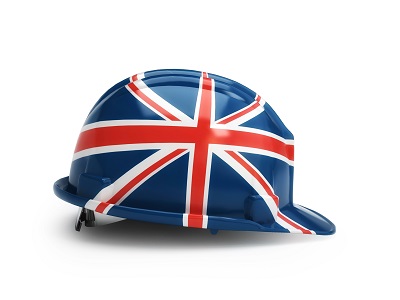
“Privatisations” were done to make again room for the private sector, and for government officials to stop managing a particular business. In reality, of course, the boundaries may be blurred…
Instances of classical liberal-leaning (critics would say: neo-liberal) government were very few in the 20th century. Margaret Thatcher’s one was perhaps the most spectacular, as England really walked a long way in the direction of the command-and-control economy. Thatcher’s privatisations were the first and as a political leader she cast a long shadow: so that even today, twenty-eight years after she left office, she is regularly evoked in broader debates over the balance between the public and the private sector.
Carillion, a British big construction company that grew enormously in a bunch of different businesses active in public procurement, is now filing for liquidation. In England’s cultural climate, which is by no means friendly to conservatives at this moment, this bankruptcy is revitalising those on the left who want to do away with the Iron Lady’s legacy. It is probably, by all means, “the end of the love affair between governments and private contractors“.
Carillion managed facilities for the NHS, planned to build “smart motorways”, managed homes for the Ministry of Defence, built schools and universities, managed libraries and maintained almost half of British prisons. It was thus a giant of public-private partnership, whose demise will have an important effect – politically and perhaps culturally too.
I would like to point to two articles on Carillion, one by libertarian Tim Worstall, one by ostensibly non-libertarian Simon Jenkins.
On CapX, Tim writes:
But the point is that critics of outsourcing cannot have it both ways: firms like Carillion cannot be overpaid leeches surviving on the largesse of the state and insolvent basket cases. Carillion is proof that we weren’t paying the costs of the services we received.
I think Tim alludes to an important point. Enemies of “privatisation” often confuse it with “outsourcing”. The two things may coincide (ie, government A privatises its service company B and then buys services from it) but are nonetheless rather different. Privatisation emerged when government was owning companies that produced services and goods for the general public, which were brought back into private ownership. Sometimes companies have been privatised even though the government was basically in a monopsonistic position when it comes to their products. Such a privatisation was often motivated by the fact these companies were utterly inefficient, as well as because they were more or less controlled not by “the State” (an abstract entity) but by “political parties” (i.e., groups of real human beings who used these companies to gain consensus by providing jobs or buying stuff from certain suppliers and not others). In some cases–a story we in Italy know all too well–such “privatisations” were “privatisations in the name only”, as the government de facto retained control.
What we may say, at a certain level of generality, is that winning a public procurement order is not the same thing as selling goods or services in a market economy. The way in which prices are determined is if not political, bureaucratic: it goes by rules defined ex ante, which can be of course perfectly reasonable, or may be not.
By its nature, companies that live off of government procurement have a different “ethos”, if I may say so, than that of “privatisations” in a stricter sense. “Privatisations” were done to make room for the private sector, and for government officials to stop managing a particular business. In reality, of course, the boundaries may be blurred (if you privatise the electricity company, the government will have to continue to buy electricity anyhow) but there is a basic difference between businesses who operate in a market and businesses whose only potential buyer is a sovereign. This difference is profound and crucially concerns the way in which prices emerge
Simon Jenkins recognises this in a short but thoughtful piece for The Guardian.
He writes:
No one ever lost money doing business with the government: it was too stupid and had too much money. So went the old saying. Carillion has just proved it wrong. Britain’s second biggest construction company and state contractor has gone into liquidation.
… The fate of Carillion does not undermine privatisation. Gargantuan profits made at the taxpayers’ expense long pre-dated Thatcherism – witness the cost-plus rackets in defence procurement, NHS pharmaceuticals, road-building and public housing. During the last mass public-sector construction, 1970s’ hospitals, some of the costliest, ugliest and least efficient buildings in the land were built.
Jenkins adds:
What the Carillion saga demonstrates is the rampant indiscipline in the contracts themselves. The company’s demise is attributable to favouritism, cost escalation, excessive risk, obscene remuneration and reckless indebtedness. Carillion and its bankers clearly thought it too big to fail. Whitehall behaved accordingly. It was like a pre-2008 bank.
These are important points to consider. But of course many will just be happier in saying “down with privatisation”.

READER COMMENTS
Conscience of a Citizen
Jan 17 2018 at 11:55pm
Huh? Carillion may only be proof that crooked managers unafraid of prosecution by their official cronies can loot any firm into insolvency, billing-for but not necessarily delivering whatever services the government customer supposedly purchased, leaving behind a trail of unpaid junior staff, sub-contractors, and suppliers.
Comments are closed.